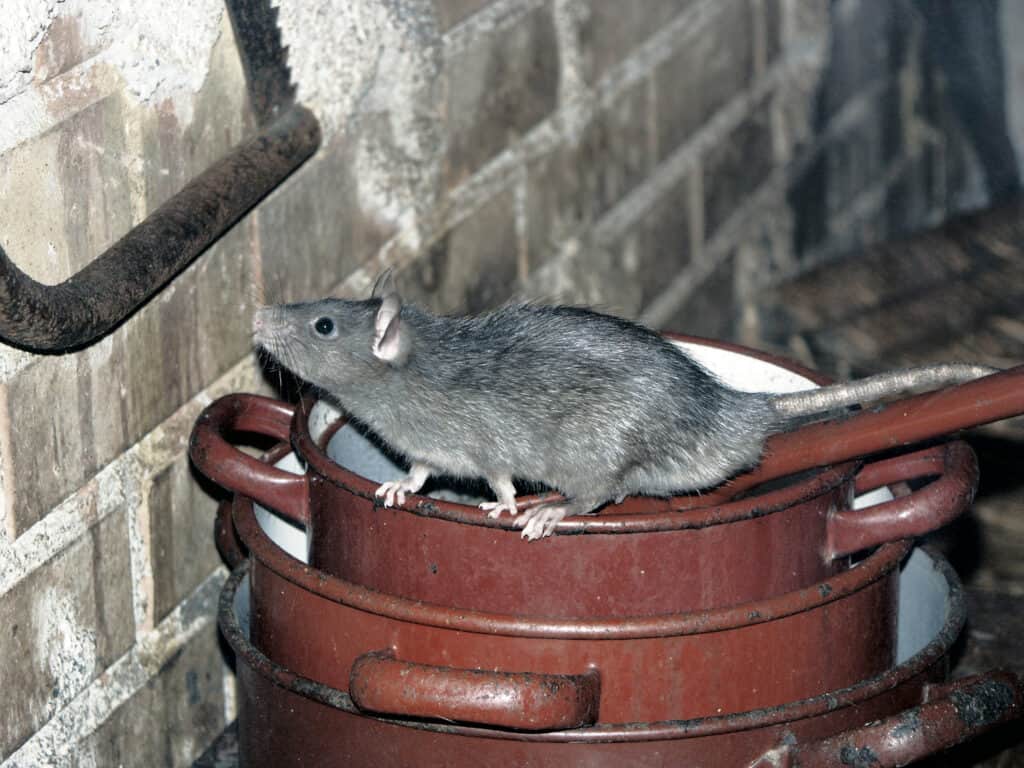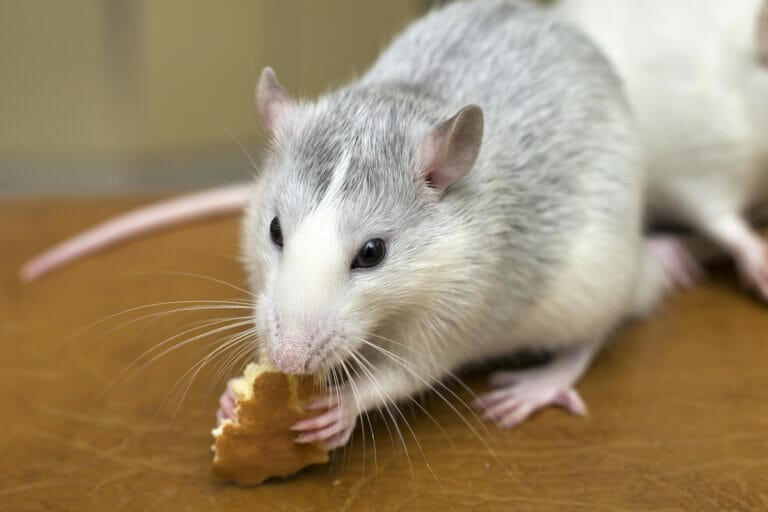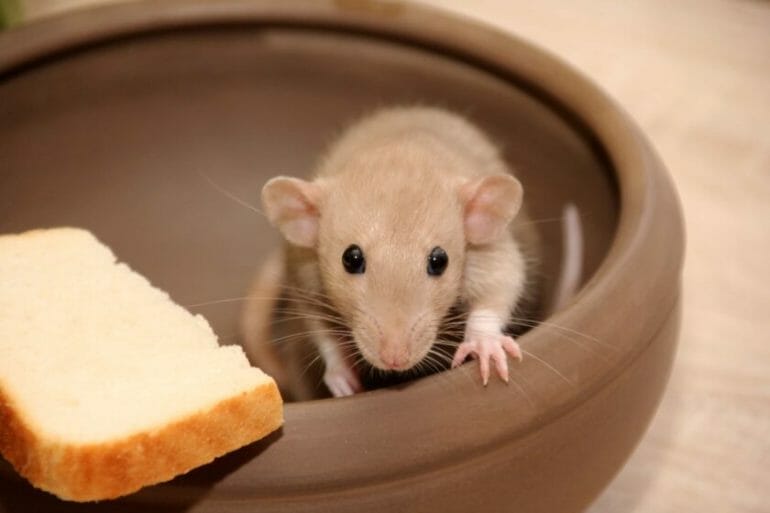Wondering if rats can have tortilla chips? While rats can eat a variety of foods, including fruits, vegetables, and grains, it’s important to be cautious when it comes to feeding them certain human foods. Tortilla chips, for example, are high in salt and unhealthy oils, which can be harmful to rats if consumed in large quantities. It’s best to stick to a rat’s regular diet of lab blocks, fresh produce, and occasional treats that are safe for their sensitive digestive systems.

Potential Risks of Feeding Tortilla Chips to Rats
While tortilla chips might seem like a harmless treat, feeding them to rats can pose several potential risks. It is important to consider the health and safety implications before offering any human food to these small rodents. In this section, we will explore the potential risks associated with feeding tortilla chips to rats.
1. High Sodium Content
Tortilla chips often contain a high amount of sodium, which can be detrimental to a rat’s health. Rats have sensitive kidneys that are not designed to handle excessive amounts of sodium. Consuming foods with high sodium content can lead to dehydration and potentially even kidney damage. It is crucial to monitor the sodium intake of pet rats to prevent serious health complications.
2. Unhealthy Fats
Tortilla chips are typically fried in oil, resulting in a high-fat content. While rats do require some fat in their diet, an excess of unhealthy fats can lead to obesity and related health issues such as heart disease and reduced life span. Feeding rats fatty foods like tortilla chips on a regular basis can disrupt their nutritional balance and put their well-being at risk.
3. Lack of Essential Nutrients
Rats have specific dietary requirements to maintain optimal health. Tortilla chips do not provide the necessary nutrients that rats need to thrive. Rats require a balanced diet that includes protein, fruits, vegetables, and grains. Feeding them a diet high in processed snacks like tortilla chips can result in malnutrition and deficiencies in essential vitamins and minerals.
4. Choking Hazard
Due to their small size, rats are at risk of choking on larger food items. Tortilla chips can be particularly dangerous as their crispy texture can break apart into sharp pieces. These fragments can cause obstructions in the rat’s airway, leading to choking or other serious respiratory issues. It is crucial to avoid feeding rats foods that can easily become lodged in their throat.
5. Impact on Dental Health
Rats have continuously growing teeth, and a proper diet is essential to prevent dental issues. Tortilla chips can contribute to dental problems such as tooth decay and overgrowth. The crunchy texture of the chips can lodge between their teeth or damage their delicate enamel. Regularly feeding rats foods like tortilla chips can result in painful dental conditions that require veterinary intervention.
6. Disturbance to Digestive System
Rats have a delicate digestive system that can be easily disrupted by inappropriate food choices. Tortilla chips are not easily digestible for rats, and consuming them can lead to gastrointestinal distress such as stomachaches, diarrhea, and constipation. These digestive issues can cause discomfort and potentially lead to more severe complications if the problem persists.
In summary, while it may be tempting to share your favorite snacks like tortilla chips with your pet rat, it is important to prioritize their health and well-being. Feeding tortilla chips to rats can result in a variety of risks, including high sodium content, unhealthy fats, a lack of essential nutrients, choking hazards, dental problems, and digestive disturbances. It is best to stick to a proper rat diet that consists of nutritious foods specifically formulated for their needs.

Alternatives to Tortilla Chips for Rat-Friendly Snacks
If you are a rat owner, you know how important it is to provide your furry friend with a nutritious and varied diet. While tortilla chips may seem like a tempting snack option, they are not the healthiest choice for rats. Luckily, there are plenty of alternatives that you can offer your rat as a tasty and rat-friendly treat. In this section, we will explore some of the best alternatives to tortilla chips that will keep your rat happy and healthy.
1. Fresh Fruits and Vegetables
Fresh fruits and vegetables are an excellent choice when it comes to rat-friendly snacks. Rats enjoy a wide range of fruits and vegetables, including apples, carrots, broccoli, and bananas. These foods are not only delicious but also provide essential vitamins and minerals for your rat’s well-being. You can serve them as small pieces or chop them up into tiny portions for easy snacking.
2. Whole Grain Crackers
Whole grain crackers can be a great alternative to tortilla chips. Look for options that are low in salt and avoid those that contain artificial flavors or preservatives. Whole grains are rich in fiber and provide a good source of energy for your rat. Just make sure to break the crackers into small, bite-sized pieces to prevent choking hazards.
3. Rice Cakes
Rice cakes are another healthy option for rat-friendly snacks. They are low in fat and can be easily broken into smaller portions for your rat to enjoy. Opt for plain or unsalted rice cakes to avoid any added sugars or excessive sodium. You can also try offering your rat flavored rice cakes, such as apple or cinnamon, for a bit of variety.
4. Cooked Pasta
Cooked pasta, such as whole wheat or rice-based varieties, can be a simple and satisfying snack for your rat. Ensure that the pasta is cooked al dente and cooled before serving it to your furry friend. Avoid using any sauces or seasonings that may be harmful to rats. Plain pasta is the best option for a healthy and rat-friendly treat.
5. Nuts and Seeds
Rats enjoy nuts and seeds as an occasional snack. However, they should be given in moderation due to their high-fat content. Opt for unsalted varieties of nuts, such as almonds or walnuts, and offer them in small quantities. Pumpkin seeds and sunflower seeds are also a great choice and can provide additional nutrients for your rat.
6. Homemade Rat Treats
If you enjoy spending time in the kitchen, you can try making homemade rat treats. There are numerous recipes available online that use rat-friendly ingredients, such as oats, honey, and fruits. Homemade treats allow you to control the ingredients and ensure that your rat is receiving a nutritious and safe snack.
In summary, when it comes to providing rat-friendly snacks, there are plenty of alternatives to tortilla chips. Fresh fruits and vegetables, whole grain crackers, rice cakes, cooked pasta, nuts and seeds, and homemade rat treats are all excellent options that can keep your rat satisfied and healthy. Remember to offer these snacks in moderation and always consult with a veterinarian if you have any concerns about your rat’s diet.

Tips for Keeping Rats Healthy and Happy with Their Diet
Rats are intelligent and social creatures that make great pets. One of the most important aspects of caring for your pet rat is providing them with a healthy and balanced diet. A well-planned diet is essential for their overall health and happiness. In this section, we will discuss some useful tips for keeping rats healthy and happy with their diet.1. Provide a Balanced Diet
Just like humans, rats require a balanced diet to thrive. Their diet should consist of a variety of nutrients to meet their specific needs. A good rat diet should include a mixture of pellets, fresh fruits and vegetables, grains, and occasional treats. Pellets should make up the majority of their diet, as they are specifically formulated to provide all the essential nutrients.2. Offer Fresh Fruits and Vegetables
Fresh fruits and vegetables are a great addition to your rat’s diet. They provide important vitamins and minerals that help support their overall health. Some rat-friendly options include leafy greens like kale, spinach, and lettuce, as well as fruits like apples, bananas, and strawberries. It’s important to introduce new foods gradually to avoid upsetting their digestive system.3. Limit Fatty and Sugary Foods
While treats can be given occasionally, it’s important to limit fatty and sugary foods in your rat’s diet. These foods can lead to obesity and other health issues if consumed in excess. Foods to avoid or offer sparingly include chocolate, junk food, and high-sugar fruits. Opt for healthier options like unsalted nuts, seeds, or small pieces of cooked lean meat as treats.4. Ensure Access to Fresh Water
Water is essential for your rat’s well-being. Make sure to provide fresh, clean water at all times in a water bottle attached to their cage. Change the water daily to ensure its freshness. Avoid using bowls as rats may tip them over or contaminate the water. Regularly check the water bottle’s nozzle to ensure it is working properly.5. Feed Small, Regular Meals
Rats have small stomachs and a high metabolism, so it’s best to feed them small, regular meals throughout the day. This approach mimics their natural eating habits and helps prevent overeating. Divide their daily food portion into multiple servings and offer them at different times. This helps keep them active and engaged and prevents boredom.6. Offer Enrichment Opportunities
In addition to providing a healthy diet, it’s important to offer enrichment opportunities for your rat. Rats are intelligent and curious animals that thrive on mental stimulation. Providing toys, tunnels, and puzzle feeders can keep them physically and mentally active. This prevents boredom and encourages natural behaviors, leading to a happier and healthier rat.7. Monitor Their Weight and Health
Regularly monitor your rat’s weight and overall health. Obesity can lead to numerous health issues, so it’s important to ensure they are maintaining a healthy weight. If you notice any changes in their appetite, behavior, or weight, consult a veterinarian for further evaluation and guidance. Regular check-ups with a vet are also recommended to ensure your rat’s well-being. In summary, a well-balanced diet is crucial for keeping rats healthy and happy. Provide them with a mix of pellets, fresh fruits and vegetables, grains, and occasional treats. Limit fatty and sugary foods, and always ensure access to fresh water. Feed them small, regular meals and offer enrichment opportunities to keep them mentally and physically active. Monitoring their weight and overall health is important for catching any potential issues early on. By following these tips, you can ensure that your pet rat lives a long and fulfilling life.Common human foods that are safe for rats to enjoy
Rats are omnivorous creatures and can eat a variety of foods. While it is important to provide them with a balanced diet that includes commercial rat food, you can also offer some common human foods to add variety and nutrition to their diet. However, not all human foods are safe for rats to consume. Here is a list of common human foods that are safe for rats to enjoy:
1. Fruits
Rats enjoy a wide range of fruits and these can be a healthy addition to their diet. Some fruits that rats can safely consume include:
- Apples: Remove the seeds and core, and offer small slices of apple to your rat.
- Bananas: Small pieces of ripe banana are a delicious treat for rats.
- Grapes: Remove the seeds and offer a few small grapes to your rat.
- Blueberries: These antioxidant-rich berries can be given as a nutritious snack.
2. Vegetables
Vegetables are an important part of a rat’s diet. Some vegetables that are safe for rats to consume include:
- Carrots: These can be given as a crunchy and nutritious treat.
- Broccoli: Offer small florets of cooked or raw broccoli to your rat.
- Cucumbers: Slice a cucumber into small pieces and give them to your rat.
- Peas: Cooked or raw peas can be a source of protein and vitamins for rats.
3. Grains and Cereals
Grains and cereals can provide rats with energy and fiber. Some safe options include:
- Oats: Cooked oats can be a warm and comforting treat for rats.
- Rice: Offer small amounts of cooked rice as a source of carbohydrates.
- Whole wheat bread: Small pieces of whole wheat bread can be given as a snack.
- Pasta: Cooked pasta, without any added seasonings, can be a filling treat.
4. Protein-rich Foods
Protein is an essential component of a rat’s diet. Some safe protein-rich foods for rats include:
- Boiled chicken: Offer small pieces of boiled chicken as a source of lean protein.
- Eggs: Cooked eggs can be given to rats as a protein-packed treat.
- Tofu: Small amounts of plain tofu can be a healthy addition to a rat’s diet.
- Plain yogurt: Rats can enjoy a small amount of plain yogurt as a source of protein and calcium.
5. Nuts and Seeds
Nuts and seeds can be given to rats in moderation as a source of healthy fats and nutrients. Some safe options include:
- Almonds: Offer a small piece of unsalted almond to your rat.
- Pumpkin seeds: These can be given as a crunchy and nutritious snack.
- Sunflower seeds: Rats can enjoy a few pieces of unsalted sunflower seeds.
- Walnuts: Offer a small piece of unsalted walnut to your rat.
Remember to introduce new foods gradually and in small quantities to prevent any digestive issues. It is also important to avoid giving rats foods that are toxic to them, such as chocolate, caffeine, garlic, onions, and sugary or salty foods.
By offering a variety of safe human foods in addition to their regular diet, you can provide your pet rat with a nutritious and enjoyable eating experience.
FAQs
Can rats have tortilla chips?
No, rats should not be fed tortilla chips. These snacks are high in salt, fat, and carbohydrates, which can be harmful to rats and may cause digestive issues. It is best to stick to a balanced diet of commercial rat food and fresh fruits and vegetables for your pet rat.
Conclusion
In conclusion, while it may be tempting to share your tortilla chips with your pet rat, it is not recommended to do so. Rats have different dietary needs than humans, and certain foods can be harmful to their health. Tortilla chips are high in salt, oil, and preservatives, which can lead to digestive issues and weight gain in rats. It’s important to provide a balanced and nutritionally appropriate diet for your pet rat, consisting of specially formulated rat pellets, fresh vegetables, and occasional small, rat-safe treats. Always consult with a veterinarian for specific dietary recommendations for your pet rat’s individual needs.

